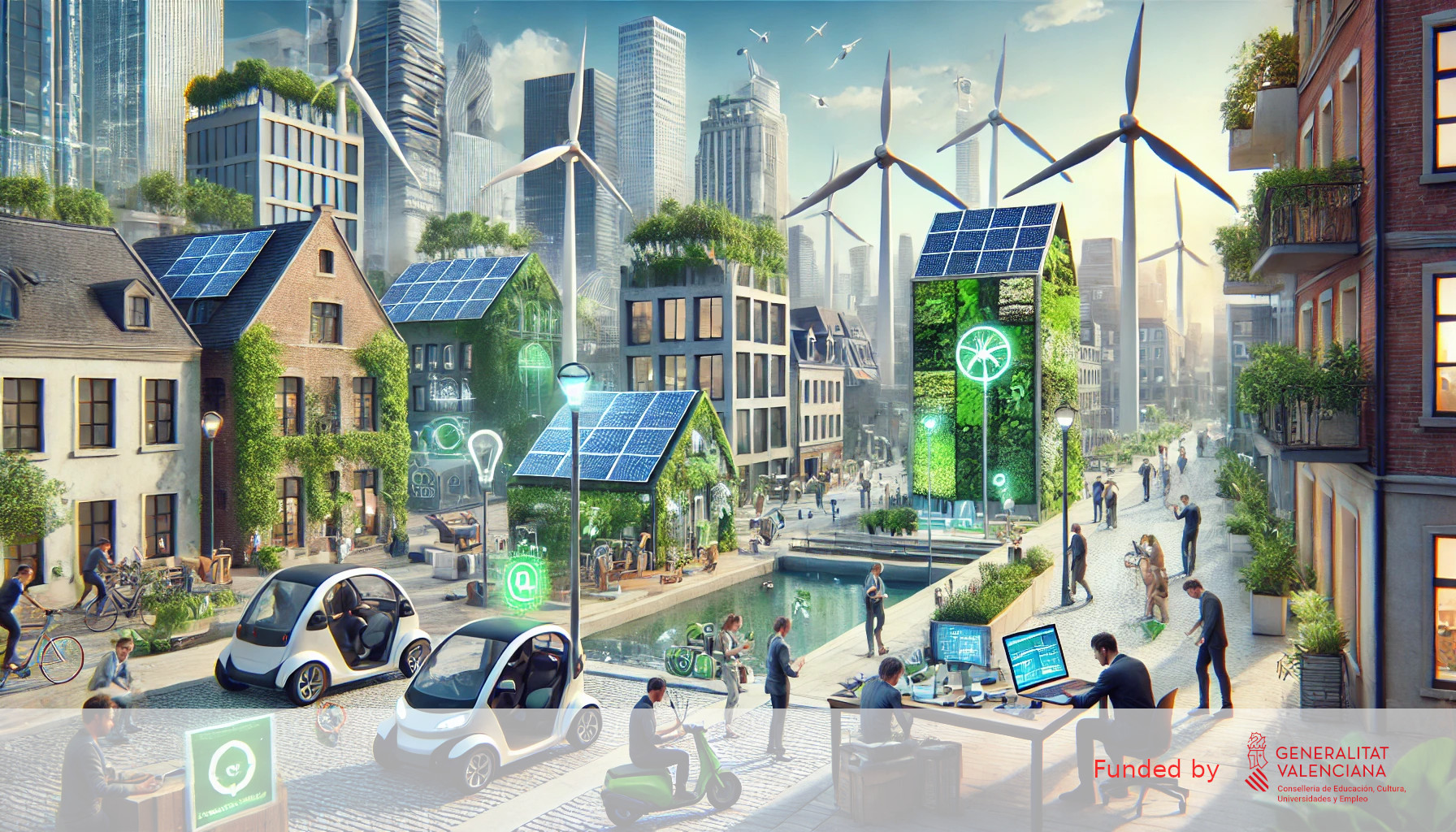Green technologies and the labour market in Europe.

- Programme: Grants for emerging research groups.
- Funding entity: Generalitat Valenciana. Department of Education, Culture, Universities and Employment.
- Duration: 2024-2025.
Summary
Since the mid-20th century, concern about environmental impact and climate change has grown, giving rise to international commitments such as the 2015 Paris Agreement to limit global temperature rise to 2°C. Policies seek to reduce greenhouse gas emissions and promote low-carbon technologies, although these face obstacles such as high costs and market barriers. The green transition also poses social challenges, such as the need for a ‘just transition’ that minimises economic and gender inequalities. Green innovation is linked to territorial capacities, heterogeneous knowledge and specific labour skills, highlighting regional and gender disparities in participation. Moreover, technological development generates labour reconfigurations, such as the creation of new jobs and the disappearance of others, affecting the most vulnerable sectors. However, research on these dynamics, especially in Europe, remains limited, calling for studies on job skills and inequalities associated with green technologies.
Project objectives
This project analyses the factors driving the development of green technologies and their effects on the labour market, with a focus on the European Union. Based on previous studies, it aims to investigate the job skills needed for green innovation, their interaction with the labour market and their impact on economic and gender inequalities. Using geolocalised data, it will study how labour skills favour or constrain innovation according to the life cycle of technologies. Furthermore, it will analyse how these technologies reshape the labour market from requiring abstract tasks in early stages to routine tasks in mature stages. It will also explore whether green technology development reduces or widens gender gaps. The objectives include updating databases on green technologies, conducting empirical studies on skills and inequalities, and designing inclusive policies for a sustainable transition.